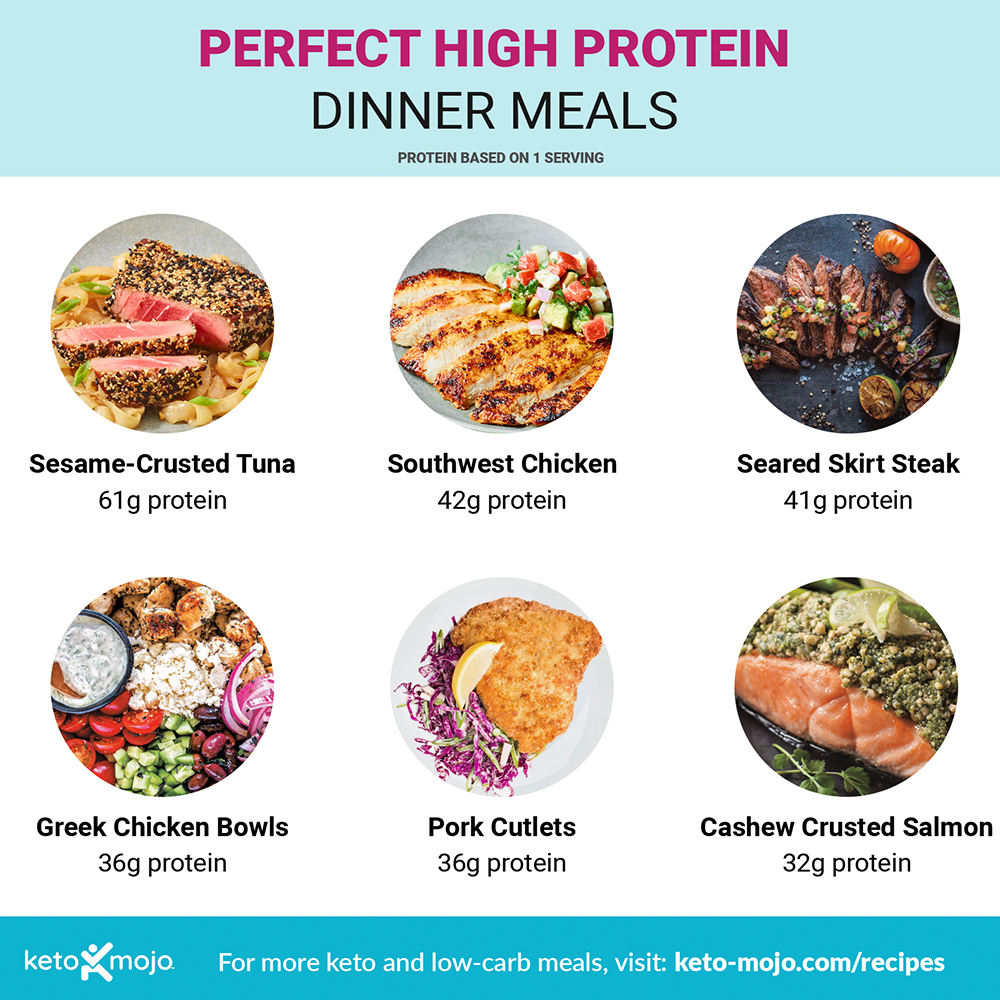Can Too Much Protein Kick Me Out of Ketosis?
UPDATED BY FRANZISKA SPRITZLER, RD, CDE on May 8, 2024
Most people will tell you that protein consumption is key to a healthy diet. Protein fills you up, is used to maintain and build muscle mass, and protein foods are a good source of vitamins and minerals. All this is true. But when eating a well-formulated ketogenic diet, you not only keep your carb intake low enough to ensure that your body uses fat as its main fuel source but also keep protein intake moderate in order to ensure that you remain in ketosis.
Want to understand why? Read on.
Adequate vs. Excessive Protein Intake
After a meal, your body breaks down protein into amino acids, which are known as the building blocks of protein. These amino acids are used for various functions in the body, such as maintaining muscle mass and creating enzymes and hormones. It’s very important to get adequate protein, including on a ketogenic diet. However, if your protein intake is much higher than your body needs, your pancreas will release more insulin to help your muscles take up the excess essential amino acids. The increase in insulin can reduce ketone production in the liver. Additionally, some amino acids are considered glucogenic, meaning they can be converted into glucose, particularly when consumed in excess.
This means that depending on how your unique body reacts to eating more protein than your body requires, you may experience noticeably lower ketone levels and perhaps even discover that you are no longer in ketosis.
How Much Protein Do You Need?
To best understand the right amount of protein you should eat, you need to know your optimal daily macronutrients, or macros (your recommended daily calories broken into grams of protein, grams of fat, and grams of carbs based on your age, body weight, body composition, height, goals, and other factors).
Once you know your recommended macros, you’ll want to stick close to the daily maximums to ensure you stay in ketosis. However, you may need to increase your protein intake if you regularly elevate your heart rate (via high activity levels from exercise) for at least 30 consecutive minutes.
It’s also important to make sure that you’re not skimping on healthy fat. If you fall short on your fat intake while eating higher amounts of protein, you may find that you are no longer in ketosis.
That said, in the same way that some people can up their carbohydrate intake and stay in ketosis, some people can tolerate more protein than others. The only way to find out if you’re one of those people who needs more or less protein is to test your blood with a ketone and blood glucose meter.

Testing to Get Clarity
Conducting ketone and glucose blood tests allows you to get a clear picture on how your body is responding to what you’re eating. If you’re eating over your protein macros every day and you remain in ketosis, then your body can handle it. If you’re edging over the recommended amount of protein and are falling out of ketosis, it’s time to rein in your diet.
When testing for food sensitivities, be sure not to introduce too many additional variables into your diet; they can skew your results. Instead, focus on a diet of clean foods you know you don’t have sensitivities to and see if excess protein is influencing your success.
The Final Word
Whether you’re trying keto for weight loss, to reverse type 2 diabetes, to mitigate epilepsy, or to achieve other health benefits, protein remains an important part of the keto diet. Your body needs adequate protein based on your calculated macros, and even more if you’re exercising regularly. With a little time and experimentation, you’ll figure out how much is right for you.
Looking for a few good protein sources? Try a chicken breast with the skin on; a grass-fed steak, a pork chop; or a cheese omelet. You can also explore the delicious main course recipes on our site.
Disclaimer: You should always consult with a dietitian or your primary care doctor before making any major changes to your diet.



